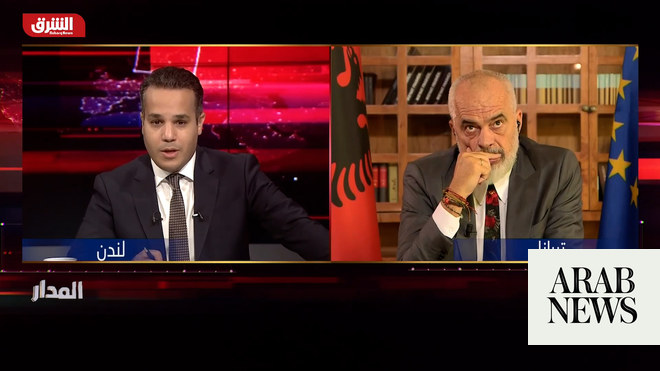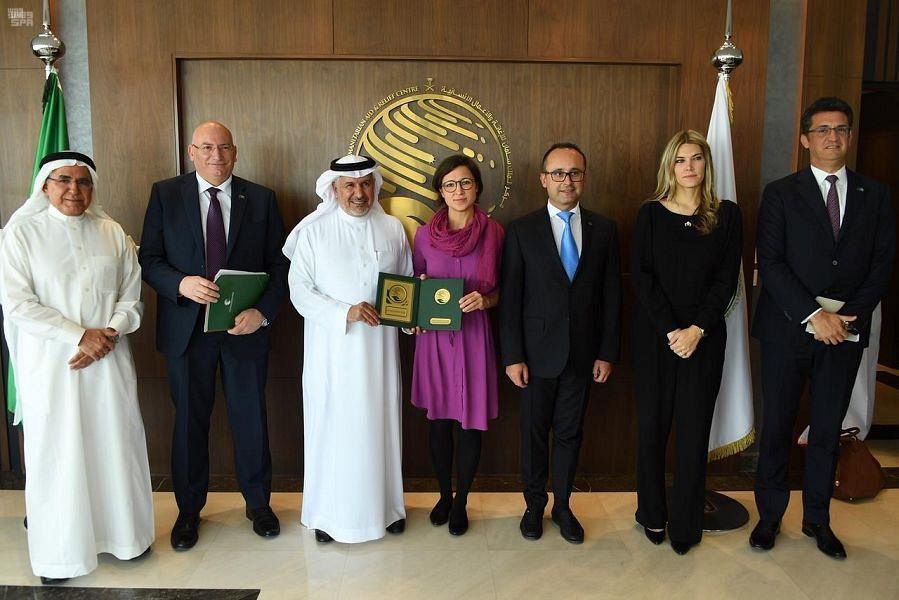
With Vladimir Putin inaugurated for a fourth term on Monday, the Arab world should expect more Russian attempts to deepen its political, security and economic ties with the region. Since Russia made its grand re-entry into the Middle East with its Syria intervention in 2015, Moscow has pursued a rigorous Arab policy. It is true that Russia is more deeply involved with Iran and Turkey, its closest partners in Syria, but this did not come at the expense of Moscow’s Arab relations.
With continued uncertainty regarding US strategy in the region, Russia is offering itself as a stable partner for major Arab players. Asking Arab countries already allied with the US to shift to the Russian side is a non-starter. Moscow, in any case, is not demanding any country give up its US ties in return for closer relations. This is true when it comes to Saudi Arabia, Egypt and Iraq. Russia today has good working relationships with all three major Arab countries that transcend possible disagreements over certain policy approaches. And, as Putin embarks on six more years at the helm, he will certainly seek to deepen these ties.
Some in the Arab world still look at Russia through the zero-sum prism of the Cold War era. This, however, is a false notion and could lead to confused policy. Russia under Putin, especially in recent years, is following an ultra-pragmatic policy in the Middle East, which focuses on serving Russian national interests. It is true that Russia, alongside China, is a rising power that seeks a more favorable international balance of power. It is also true that Russia is rebuilding its sphere of influence in the Middle East after decades of being absent from the scene. But, at a tactical level, Russia has crucial, and more short-term, economic and security interests in the Middle East that can only be achieved through dialogue and cooperation with the Arabs.
Iraq was once an important client state of the Soviet Union, and relations continued between Baghdad and Moscow after the Cold War. The 2003 US invasion, however, was a crucial watershed. Nonetheless, a few years after the invasion, Moscow began to rebuild its presence in Iraq, mostly in economic terms. Russian oil companies began to take on more ventures in the country, albeit on a small scale. However, it was the emergence of Daesh, above all, that took the Russian-Iraqi relationship to a new level.
Today, Iraq is emerging from a long conflict against terror and an internal crisis between Baghdad and Irbil. The country is also at the intersection of US-Iranian tensions, with a crucial election coming up. This space might seem too complicated and uncertain for Moscow to establish any presence in the troubled, but still wealthy, nation. The Russians, however, are working closely to build and expand the relationship with Iraq despite the many challenges. During the war against Daesh, an organization which attracted thousands of fighters from former Soviet Union countries, Russia supplied Iraq with warplanes, helicopters, tanks and missile launchers that greatly helped the war effort. Furthermore, Russia is supplying Iraq with a modern air defense system, which could indicate Moscow is looking to establish a deeper strategic partnership with Baghdad, beyond mere arms sales.
Moscow, owing to its historic relations with Baghdad and Irbil, could play a role in any mediation between the central government and the Kurdistan Region. On the economic front, Russia is looking forward to taking part in the reconstruction of Iraq, adding to its existing privileged position in the future reconstruction of Syria. Moscow, the biggest non-OPEC oil producer, besides expanding its presence in the Iraqi energy sector, also needs continued dialogue with Baghdad, an OPEC member, on the future of oil prices.
Russia has greatly benefited from the rise in oil prices, which came partly as a result of an agreement with Saudi Arabia.
Fadi Esber
Meanwhile, facing threats from American shale, the agreement on cutting oil production is the cornerstone of the burgeoning Saudi-Russian strategic relationship. It is true that the two countries don’t see eye-to-eye on many regional issues, but this did not stop them from taking the relationship to the next level. The proposed sale of the advanced S-400 Russian air defense system to Saudi Arabia is another indicator of the upward trend in relations.
Russia has greatly benefited from the rise in oil prices, which came partly as a result of an agreement with Saudi Arabia. Moscow, however, is looking for further economic benefits from its relations with Riyadh and the GCC. Over the past few years, billions of dollars of Gulf investments have gone into the Russian economy. With the pressure Western sanctions are putting on Russia’s finances, these Arab investments are crucial and timely. In the coming years, Putin will be looking to deepen economic ties with Saudi Arabia and the GCC, while also trying to nudge political dialogue forward on many regional issues.
Finally, the Russian-Egyptian relationship seems likely to witness an expansion in the coming years, despite lately losing steam. Russia is resuming commercial flights to Egypt, which means millions of tourists and billions of dollars entering the Egyptian market. Russian arms sales to Cairo are also on an upward trend, with advanced helicopters and an air defense system delivered in recent years. Reports last year that Egypt would allow Russia to use an air base are yet to materialize. Both countries, nonetheless, can benefit from security cooperation. With terror threats on both its flanks, Egypt can use Russian assistance in this regard. On the other hand, bases in Egypt will remarkably advance the Russian position in the Eastern Mediterranean.
In the coming years, progress in Russian-Arab relations will take an irreversible course. With time, mutual economic and security interests will strengthen as both sides see strategic and tactical advantages in them. This will allow Russia to present itself as an arbiter in a host of issues relevant to Iraq, Egypt and the GCC. But, with increasing complexity in the region, in addition to the lack of a discernible regional order or security structure, Putin will remain very cautious in navigating Russia’s Arab relations.
Fadi Esber is a founding associate at the Damascus History Foundation. He is pursuing a doctorate in history at the London School of Economics.
Disclaimer: Views expressed by writers in this section are their own and do not necessarily reflect Arab News" point-of-view












